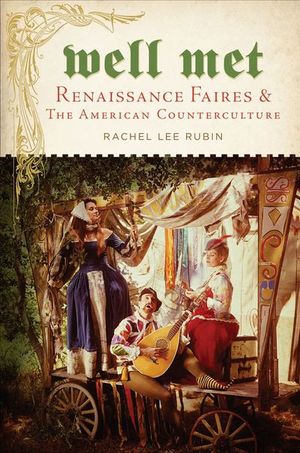Well Met
Published by NYU Press
Rubin deftly reveals the impact the Faire has had on style, craft, performance, and pop culture over the past fifty years in a one-of-a-kind study.” —David Ossman, member of the Firesign Theatre
Beginning with the chaotic communal moment of the Renaissance Faire’s founding and early development in the 1960s through its incorporation as a major “family friendly” leisure site in the 2000s, Well Met tells the story of the thinkers, artists, clowns, mimes, and others performers who make the Faire.
Well Met approaches the Faire from the perspective of labor, education, aesthetics, business, the opposition it faced, and the key figures involved. Drawing upon vibrant interview material and deep archival research, Rachel Lee Rubin reveals the way the faires established themselves as a pioneering and highly visible counter cultural referendum on how we live now—our family and sexual arrangements, our relationship to consumer goods, and our corporate entertainments.
In order to understand the meaning of the faire to its devoted participants, both workers and visitors, Rubin has compiled a dazzling array of testimony, from extensive conversations with Faire founder Phyllis Patterson to interviews regarding the contemporary scene with performers, crafters, booth workers and “playtrons.” Well Met pays equal attention to what came out of the faire—the transforming gifts bestowed by the faire’s innovations and experiments upon the broader American culture: the underground press of the 1960s and 1970s, experimentation with “ethnic” musical instruments and styles in popular music, the craft revival, and various forms of immersive theater are all connected back to their roots in the faire. Original, intrepid, and richly illustrated, Well Met puts the Renaissance Faire back at the historical center of the American counterculture.
BUY NOW FROM
COMMUNITY REVIEWS

